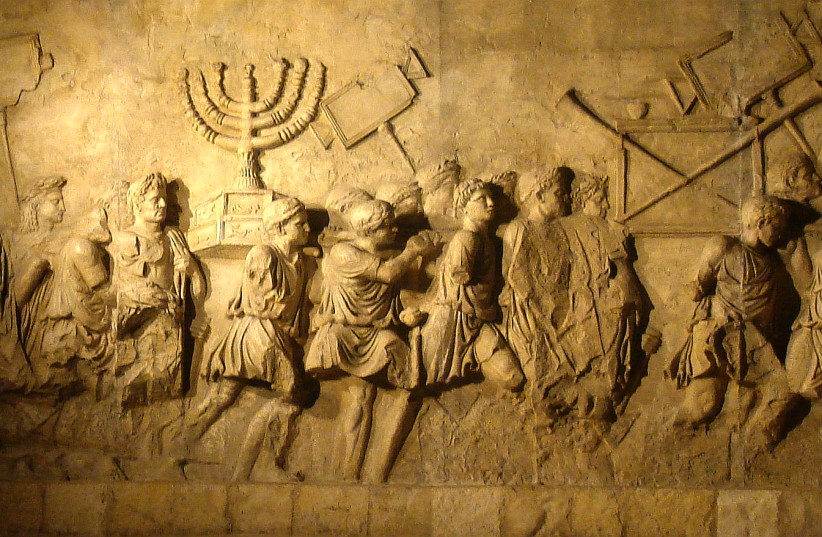Returning from the Western Wall on Tisha B’av many years ago, I stopped by the home of Mickey Shafir, who lived in the Jewish Quarter of Jerusalem’s Old City. He and his wife were among the secular half of the quarter’s population in its early days.
He did not fast on Yom Kippur, and I was surprised to see him fasting on the day that commemorates the destruction of both Temples. What was a man like him mourning? Levite chanting? Sacrifices on the altar, emitting smoke and odors of grilled meat?
He suggested we go up to the roof; from there, it would be easy to imagine the glories of Jerusalem as well as the horrors surrounding the destruction of the First Temple, as described in Lamentations and elsewhere, and the conflagration of the Second Temple. Those and the Bar Kochba Revolt led to a loss of sovereignty.
His first explanation concerned his personal story. He came to Palestine as a youth from Lithuania and never saw his family again. If not for the destruction in 70 CE, the Jewish people, he said, would not have been forced to wander and suffer persecution, culminating with the Holocaust that left him alone in the world.
I understood his point, but he continued. Decades later, I don’t remember his exact words, but the substance is embedded in my mind. For him, the fast is also a reminder of how our conduct contributed to the disasters. I was young, and my worldview was simplistic – the world is divided into good and bad. We are good. The Babylonians who destroyed the First Temple and the Romans who destroyed the Second Temple were bad. Easy, no?

A student of history, he said that wise leadership bases its actions on the balance of power and the overall strategic situation, carefully weighing the risks and benefits of each potential step. I knew the warnings of the prophet Jeremiah from Bible study at school but had not translated them into political terms. Jeremiah warned against misjudging the relative power of Egypt, Babylon, and especially Judea itself. He also spoke up against corruption and social injustice, which undermined cohesion.
What does history teach us?
The destruction of the Second Temple was likewise preceded by an arrogant and provocative reading of the situation; for example, when ritual sacrifice in honor of Caesar, which had been in place for years, was refused. Messianism developed in parallel with Roman hard-handedness, culminating with the burning of the storehouses. This accompanied social division when the rich had private militias while the poor continued providing tithes, carrying a disproportionate burden while being scorned and exploited.
Within the general deterioration, the position of the High Priest, supposedly the spiritual leadership, became nothing more than a contest between rival families who paid for the role.
Similar to the First Temple times – when Jeremiah was imprisoned for his prophecies, and the false prophets, who told the people what they wanted to hear were popular – at the end of the Second Temple period, those who warned and called for compromise were derided.
Rabbi Yochanan ben Zakai was deemed the equivalent of a defeatist. But he was realistic and understood that one cannot have it all. When he resourcefully asked the Roman commander Vespasian to “give me Yavne and its wise men,” a path was opened for Jewry to continue its national existence without a Temple at its heart.
Every year around this time, and this year more than ever, I recall that conversation. I pray that future historians will not be called upon to analyze the obtuseness, zealousness, vanity, and corruption of the present and to speak about their consequences, as Mickey did.
The writer was Israel’s first ambassador to the Baltic states after the disintegration of the Soviet Union, ambassador to South Africa, and congressional liaison officer at the embassy in Washington. She is a graduate of Israel’s National Defense College.
